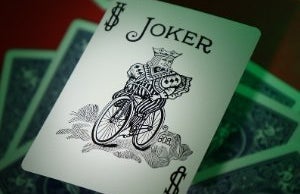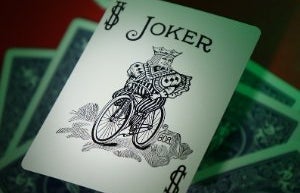Todd Phillips’ highly anticipated sequel to his ground-breaking anti-hero feature, Joker,
released in early October to mixed reviews from both critics and fans alike. But is it really as
bad as people claim? When I first walked out of the cinema after viewing Folie à Deux, I was
lost for words – a rare occurrence which I haven’t experienced since the release of Rian
Johnson’s The Last Jedi. Nearly a month after watching the film, I have finally come to terms
with the events I witnessed.
Following his murderous rampage, which garnered him considerable fame at the climax of
the first movie, Joaquin Phoenix’s Arthur Fleck finds himself incarcerated in Arkham Asylum,
awaiting trial. This tale is humorously recounted in a Looney Tunes-esque cartoon, which
sets the tone for the bizarre musical scenes we are set to encounter. Fleck’s infectiously
disturbing laugh is gone, replaced by the jeers of the prison guards fixated on his inability to
tell a joke. Phoenix embraces this, delivering interactions with the guards resembling that of
a child’s silent desperation for his mother’s praise. This dolorous need for attention is further
exhibited upon Arthur’s introduction to his romantic partner, Lee Quinzel, who dotes on
Fleck’s murderous Joker persona. In this he playfully boasts of having killed six people,
including his mother, revealing an oddly narcissistic side which diminishes the audience’s
sympathy but perfectly encapsulates his childish imperfections. This portrayal of child-like
‘innocence’ creates an eerily optimistic atmosphere, far contrasting to that of the dismal,
hopeless world we are introduced to back in 2019.
As Fleck’s romance with Quinzel progresses, we witness the growth of this ‘child’ into a man
who has left behind the shell of his former self, once again embracing the Joker persona and
striving towards a new future. At the turn of the second act, we are delivered a newly defiant
Fleck, who begins to challenge the hierarchy of the prison guards (though not always
successfully) who portray the role of social oppressor.
Gaga plays the enigmatic Quinzel with great skill, disposing of the Brooklyn-bimbo
stereotype seen in recent iterations in favour of a bleak and at times capricious character.
Despite this, we are never quite given enough insight to understand Quinzel’s growth or her
motivations for associating with Fleck, beyond her obsession with his Joker persona. It
seems Phillips wanted to leave room for the audience to come to their own conclusions
about Quinzel and her ambitions, however, we are never really given enough clues to piece
together the puzzle. Instead, she feels more like an accessory than a fully realised character,
making this film more like a Folie à Un and leaving us questioning whether Miss Quinzel
ever had any real point in existing.
Phillips’ decision to make Folie à Deux a musical is something of a mystery. While it certainly
captures the insanity of the Joker character, it also risks driving the audience mad along with
him. The seemingly endless rendition of “If You Go Away” during a stagnant shot of Fleck
singing to Quinzel’s voicemail leaves you wondering if you can go away too, and if indeed
you should. Both Gaga and Phoenix portray these complex characters with great conviction;
it is simply a shame that Phillips’ script refuses to take the story anywhere new. Just like
Fleck’s repetitive self-praise, this movie functions more as a narcissistic homage to its
predecessor, fixated on the barnstorming success of the first film.
A film which starts off promisingly in the grim confines of Arkham Asylum but loses all
momentum as it devolves into a trivial courtroom drama. Folie à Deux’s most redeemable
feature is its ending – not only because it meant I could leave the cinema, but also for its shocking twist (which I will refrain from spoiling here), solidifying the Joker as an allegory for
the malcontent.
Does this movie need to exist? Not really. But is it a fun and wacky decent into madness?
Absolutely. 2.5 out of 5 stars.


